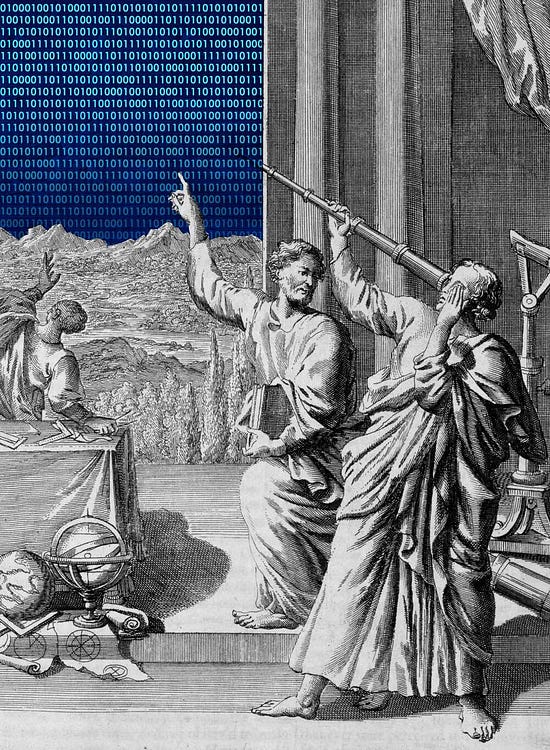
Tyler Cowen is usually the smartest person in the room. I consider him a friend, so I’ve often been in the room with him, and when he speaks, on any number of subjects, there tends to be a pause in the conversation as people reach for their notepads.
With Avital Balwit, Cowen recently co-wrote a fascinating article, published by The Free Press, on the many ways the arrival of artificial intelligence will reconfigure our basic humanity. I don’t know Balwit personally, but she tells us that at 26 she holds an important position at Anthropic, the company responsible for an AI large language model called Claude. So I suspect that she, too, is extraordinarily smart.
So here we have two extremely intelligent humans confronting the reality of transcendentally intelligent machines—and while the vision of the future they describe in their article very much leans on the side of optimism, their gut reaction is to feel diminished. AI, they tell us, will trigger “the most profound identity crisis humanity has ever faced.” The reason? AI spells the end of “human intellectual supremacy—a position we’ve held unchallenged for our entire existence.” That is, people who once thought of themselves as the pinnacle of brainpower will now struggle “to live meaningful lives in a world where they are no longer the smartest and most capable entities in it.”
My initial reflection on reading this was, Whew, could be a lot worse . . . I’m a baby boomer. The big, scary invention in my youth was the nuclear bomb, which threatened to cause the end of human existence, rather than just existential anguish. Those who survived being pulverized would be eaten by 40-foot mutated insects, Hollywood reliably informed us.
Then, when considering the matter further, I found the claim that humanity has always seen itself as the smartest thing on the planet to be curiously ahistorical. Most people to this day believe in greater powers and a higher intelligence. “The heavens proclaim the glory of God,” said the psalmist. Cosmic arrogance—what the ancient Greeks called hubris—has long been understood to lead to self-destruction. AI models like Claude, Gemini, and ChatGPT will eventually absorb all human knowledge, wisdom, and madness and then interface with us as a person or at least a personality. Thus, we are likely to approach them as the ancient Greeks once approached the oracle of Apollo at Delphi—whose prophecies were often too clever by half.

